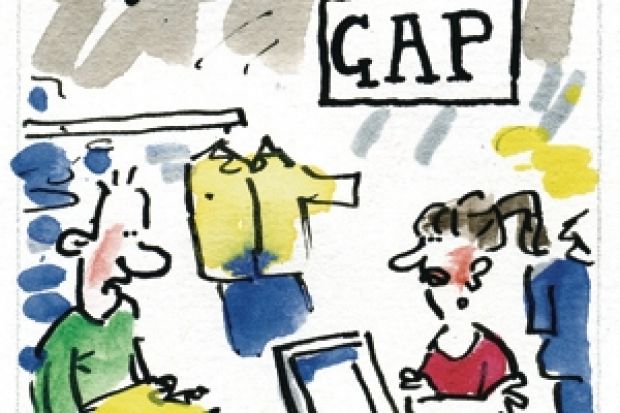- An interview with Vince Cable, the Liberal Democrat business secretary, sparked numerous letters to The Guardian on 10 August. One reader said: "I know it is Guardian policy to give Lib Dems, and Vince Cable in particular, an easy ride, but by what criteria can his statement on a visit to Teesside University - 'For someone like me, who went to Cambridge and is surrounded by those kinds of people, we tend to forget what universities like yours are doing' - be described as 'self-deprecating'? Sounds more like patronising twaddle to me." Another ticked off the newspaper for its description of Mr Cable as "looking rather like a university vice-chancellor - cerebral and unworldly, in a slightly crumpled suit". "Nowadays vice-chancellors see themselves as CEOs and dress as such," the reader said. "Being 'cerebral' would be a barrier to being appointed; being 'unworldy' is right out."
- The expectation that between 150,000 and 200,000 university applicants will miss out on a place this year led to much gnashing of teeth in the run-up to A-level results day. Almost every paper had a front-page story on the mismatch of supply and demand, with the leader of the Headmasters' and Headmistresses' Conference leading calls for a relaxation of the government-imposed cap on places. The plea was never going to be heeded, of course, and some school-leavers are reported to be taking matters into their own hands by opting out of the scramble and applying instead for non-graduate trainee posts. Blue-chip firms report growing interest in the schemes as "the assumption that a degree is needed for the best jobs appears to be fading", it was reported on 13 August. For those still aiming for university, the statistics were grim: up to 3,500 straight-A students could miss out, it was warned, and the news for diploma students was even worse, with a host of elite universities reporting that they were not taking any next year.
- If diploma students are feeling hard done by, then they will not be alone: those who have bust a gut to get A* grades at A level may find that their hard work has been in vain. It was reported on 13 August that, as expected, most universities, including the University of Oxford, will not take the A* into account this year. However, rather than seeing this as a sensible approach to allow the new grade to bed in, the Daily Mail said that the government had put universities under "overt pressure" to shun the A* in case it led to a surge in private school pupils winning places. The fear may have been well founded: it was claimed on 15 August that privately educated pupils are expected to get three times as many A*s as state school pupils. Only the University of Cambridge is using the grade in its inaugural year: of the 3,000 offers it has made, 2,800 are for grades of at least A*AA.
- For those who miss out on a university place, the traditional approach in recent years was to take a gap year, soak up some sun, and reapply the following year. But it was claimed on 15 August that "the era of the gap year is over". Mary Curnock Cook, chief executive of the Universities and Colleges Admissions Service, said work experience was now more important than seeing the world. "I believe the golden age of the gap year is over," she said. "Candidates who want to achieve a good offer next year have to use their years strategically."
- Speculation about possible outcomes from Lord Browne's review of university fees and funding was another topic of wide press interest this week. Separate reports suggested two outcomes could be in the offing: the first is a surcharge for high-earning graduates of up to 20 per cent on their tuition fees, which would then subsidise the lowest earners who would not have to repay the full amount. The second, reported on 17 August, is an extension of student loans to part-time students, which would "pave the way for a major change in the way university education is viewed, with a three-year stint in a new city no longer a given". Lord Browne's review panel is expected to report its findings to the government in October, either shortly before or shortly after the conclusion of the Comprehensive Spending Review.
Register to continue
Why register?
- Registration is free and only takes a moment
- Once registered, you can read 3 articles a month
- Sign up for our newsletter
Subscribe
Or subscribe for unlimited access to:
- Unlimited access to news, views, insights & reviews
- Digital editions
- Digital access to THE’s university and college rankings analysis
Already registered or a current subscriber?
